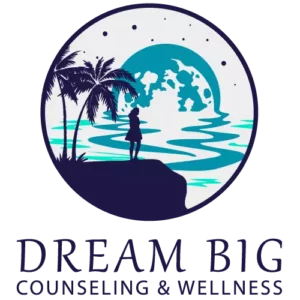Depression Therapy Georgetown: Top 5 Powerful Solutions 2025
Depression Therapy Georgetown—Key Information at a Glance
Looking for depression therapy Georgetown? Here’s what you need to know right away:
| What You’ll Find | Details |
|---|---|
| Personalized depression therapy | One-on-one sessions with a solo therapist—individualized care |
| Evidence-based modalities | CBT, EMDR, Solution-Focused, Attachment, Somatic Therapy, Safe & Sound Protocol |
| Who we treat | Adults, teens, and children—both virtual and in person appointments |
| Insurance accepted | Aetna, Blue Cross Blue Shield, United Healthcare, Scott & White Health Plan, Cigna |
| Flexible scheduling | Convenient appointments, including online therapy throughout Texas |
| Confidential support | Safe and supportive environment every session |
| Location | Georgetown, TX—serving Round Rock, Jarrell, Liberty Hill, Cedar Park, and online statewide |
Depression affects more than just your mood—it can make daily life feel overwhelming and leave you feeling isolated even when surrounded by others. If you’ve been experiencing persistent sadness, loss of interest in activities you once enjoyed, or feeling hopeless about the future, you’re not alone. Research shows that depression affects approximately 8.3% of adults in the United States, with millions seeking effective mental health treatment each year.
At Dream Big Counseling and Wellness, you’ll work with a solo, licensed mental health professional who focuses entirely on your unique story and healing journey. This isn’t a one-size-fits-all approach—every treatment plan is customized to your specific mental health needs, using scientifically-backed therapies like Cognitive-Behavioral Therapy (CBT), EMDR, and Somatic Therapy.
In this comprehensive guide, you’ll discover what major depression really involves, learn about effective Georgetown counseling options, and understand how personalized therapy can help you reclaim hope and joy in your life while developing essential coping skills for long-term mental wellness.
Understanding Depression: More Than Just Sadness
Georgetown counseling for depression addresses much more than temporary sadness or disappointment. Clinical depression, formally known as major depressive disorder, represents a persistent mental health condition that significantly impacts your daily life, relationships, and overall ability to function effectively.
According to the National Institute of Mental Health, major depression affects millions of adults in the United States annually. This mental health condition doesn’t discriminate—it can affect anyone regardless of age, background, or life circumstances. However, women experience depression at nearly twice the rate of men, often due to a complex combination of hormonal, social, and psychological factors.
Key Differences: Sadness vs. Clinical Depression
Everyone experiences sadness as a natural response to life’s challenges—losing a job, ending relationships, facing life transitions, or dealing with grief. These feelings typically fade as circumstances improve or you process what happened. Clinical depression, however, involves persistent depressive symptoms that linger for weeks or months, regardless of external circumstances.
Depression often feels like carrying a heavy weight that good events can’t lift. You might receive exciting news or spend time with loved ones, yet that underlying heaviness remains unchanged. This persistent nature distinguishes clinical depression from normal emotional responses to life’s ups and downs.
Recognizing Depression Symptoms and Mental Health Conditions
Depression manifests through various emotional, physical, and cognitive symptoms that often develop gradually during stressful life transitions:
Emotional symptoms include persistent sadness, emptiness, or hopelessness that lasts most of the day, nearly every day. You might lose interest in activities you previously enjoyed—a condition called anhedonia. Feelings of worthlessness, excessive guilt, low self esteem, or irritability often accompany these mood changes. Some people also experience anxiety, panic attacks, or anger alongside their depression.
Physical symptoms can be equally challenging and affect daily life significantly. Sleep disturbances are common, whether you struggle with insomnia, wake frequently during the night, or sleep excessively but still feel exhausted. Appetite changes—either significant weight loss or gain—often occur alongside persistent fatigue that rest doesn’t relieve. You might also experience unexplained pain or difficulty concentrating on simple tasks.
Cognitive symptoms affect your thinking processes and mental wellness. Difficulty concentrating becomes pronounced, making decisions—even simple ones—feel overwhelming. Memory problems are common, and negative thinking patterns may dominate your thoughts, making everything feel like it’s happening through thick fog.
Crisis warning signs require immediate attention from a mental health professional. If you’re experiencing recurring thoughts of death or suicide, feeling unable to care for yourself or your family, or using substances to cope with emotions, reach out for professional support immediately. Call 988 for the Suicide & Crisis Lifeline if you’re having thoughts of self-harm.
Depression in Georgetown & Central Texas
Georgetown’s growing community reflects broader mental health trends across Central Texas. The area’s rapid development brings unique stress factors that can contribute to various mental health conditions, including rising housing costs, job market fluctuations, life changes, and pressure to adapt to constant community growth.
Life transitions—whether moving to Georgetown, starting new relationships, career changes, or family shifts—often trigger or worsen depression symptoms. Understanding how these transitions affect your mental health helps in developing effective coping skills and stress management techniques.
What’s encouraging is that Georgetown residents are increasingly recognizing depression symptoms and seeking professional mental health support. The stigma surrounding mental health continues to diminish, making it easier for adults, teens, and children to prioritize their emotional well-being and develop healthy coping skills.
Working with a solo mental health professional offers distinct advantages for Georgetown residents. Rather than navigating large clinic systems, you build a consistent therapeutic relationship with one dedicated therapist who understands both your individual mental health needs and the local community context.
When to Seek Professional Support
The “two-week rule” provides helpful guidance for recognizing when professional intervention becomes necessary. If you’ve experienced depressive symptoms for more than two weeks, and these symptoms interfere with work, relationships, or daily life activities, it’s time to connect with a mental health professional who specializes in treating depression.
Certain situations require immediate attention regardless of symptom duration. Crisis indicators include thoughts of suicide or self-harm, inability to care for yourself or family members, using substances to cope with stress and emotions, or symptoms that worsen despite your efforts to improve through self care practices.
Many adults delay seeking support, believing they should handle stress and emotions independently. However, reaching out for professional mental health care demonstrates remarkable strength and self-awareness. Georgetown counseling begins with that courageous first step of acknowledging you deserve to feel better and develop effective coping skills.
Taking Your First Step
Scheduling your initial therapy sessions might feel intimidating, but the process is designed for your comfort and convenience. At Dream Big Counseling and Wellness, your journey begins with understanding your unique story, therapeutic goals, and vision for personal growth.
Before your first session, you’ll complete intake forms that help your mental health professional understand your background, current concerns, stress levels, and treatment objectives. This preparation maximizes valuable session time, allowing your therapist to focus entirely on creating a safe and supportive space for healing.
Insurance verification occurs before your appointment, eliminating surprises about coverage. Dream Big Counseling and Wellness accepts Aetna, Blue Cross Blue Shield, United Healthcare, Scott & White Health Plan, and Cigna for both in person and online therapy sessions.
Flexible scheduling accommodates your preferences with both in person appointments at the Georgetown location and secure online therapy sessions throughout Texas. This choice allows you to receive care in whatever format feels most comfortable and convenient for managing your mental health.
Evidence-Based Treatment Approaches for Mental Health Conditions
When seeking Georgetown counseling for depression, you’ll find several scientifically-proven approaches that can significantly improve your emotional well-being and mental wellness. At Dream Big Counseling and Wellness, treating depression isn’t about fitting everyone into the same program—it’s about discovering the therapeutic approach that aligns with your unique situation, personality, goals, and ability to develop lasting coping skills.
Cognitive-Behavioral Therapy (CBT)
CBT helps you identify and modify negative thinking patterns that contribute to depression and low self esteem. If you frequently think “I’m a failure” or “Nothing good ever happens to me,” CBT teaches you to examine these thoughts critically and ask: “Is this actually true? What evidence supports or contradicts this belief?”
CBT connects your thoughts, emotions, and behaviors, showing how changing one element can positively impact the others. When you develop skills to reframe harsh self-criticism and negative thinking, you often experience improved mood, increased energy, and better stress management abilities. This approach also helps adults and teens develop coping skills for managing anxiety, anger, and daily life challenges.
EMDR (Eye Movement Desensitization and Reprocessing)
EMDR is particularly effective when depression connects to trauma, grief, or difficult memories that seem to replay constantly. This gentle approach helps process disturbing experiences while engaging in bilateral stimulation, such as following eye movements.
EMDR assists your brain in processing and filing away painful experiences so they don’t continuously interrupt your present life. Many people find this approach helpful for trauma-related depression, grief processing, and developing emotional coping skills. Adults who have experienced complex trauma often benefit significantly from EMDR therapy sessions.
Somatic Therapy
Somatic Therapy recognizes that depression affects your entire body, not just your thoughts and emotions. If depression feels like carrying constant stress in your body, or if you experience emotional numbness and low self esteem, somatic approaches can be incredibly beneficial for mental wellness.
This therapy focuses on body awareness, grounding techniques, and nervous system regulation. You might practice breathing exercises, gentle movements, or mindfulness techniques that help your nervous system find balance and calm while developing self care skills.
Safe & Sound Protocol (SSP)
The Safe & Sound Protocol uses specially designed music to help regulate your nervous system and reduce anxiety. Based on solid research about how auditory processing affects nervous system function, this approach can be particularly helpful for individuals whose depression involves anxiety, panic attacks, or trauma responses.
Solution-Focused Therapy
Solution-Focused Therapy shifts attention from problems to solutions and personal growth. Instead of spending extensive time discussing what’s wrong, you focus on what’s already working in your life, explore times when you felt better, and identify existing strengths and coping skills.
This approach helps you recognize your ability to cope with stress, builds motivation for change, and develops skills for managing life transitions and daily challenges.
Attachment Therapy
Attachment Therapy explores how early relationships influence your current connections with others and affect your self esteem. Sometimes depression stems from feeling disconnected, social anxiety, or having difficulty trusting others. This approach helps you understand relationship patterns and develop more secure ways of connecting while building skills for healthier relationships.
Comparing Treatment Options
| Therapy Type | Primary Focus | Typical Duration | Best For |
|---|---|---|---|
| CBT | Changing negative thinking and behaviors | 12-20 sessions | Negative thinking, low self esteem, anxiety |
| EMDR | Processing trauma and grief | 6-12 sessions | Trauma-related depression, grief |
| Somatic | Body awareness and stress management | 8-16 sessions | Physical symptoms, feeling “stuck” |
| Solution-Focused | Building on existing skills and strengths | 6-10 sessions | Goal-oriented individuals, motivation |
| Attachment | Relationships and social anxiety | 12-24 sessions | Relationship difficulties, social anxiety |
| Safe & Sound Protocol | Nervous system regulation | Variable | Anxiety-related depression, panic attacks |
Creating Your Personalized Treatment Plan
Your treatment plan serves as a roadmap to better mental health, designed collaboratively with your unique needs, goals, and ability to develop coping skills in mind. When you begin therapy sessions, you’ll work together to identify underlying causes of your depression, outline strategies for managing stress and emotions, and develop skills that support long-term mental wellness.
What to Expect in Your Plan
Your mental health professional will conduct a comprehensive assessment of your depressive symptoms, anxiety levels, stress factors, and overall mental health. Together, you’ll identify specific goals—such as improving mood, reducing symptoms, enhancing self esteem, developing anger management skills, or improving your ability to cope with life transitions.
Your personalized plan will be tailored to your circumstances, incorporating evidence-based therapies that best address your mental health conditions. Whether you’re dealing with postpartum depression, grief, social anxiety, or complex trauma, your treatment approach will be customized to help you develop effective coping skills and achieve personal growth.
Collaborating with Your Therapist
Effective treatment centers on collaboration between you and your mental health professional. You’ll work together to identify areas needing attention, set realistic goals, and develop strategies that fit your lifestyle, values, and ability to manage stress.
Regular therapy sessions provide a safe and supportive environment where you can process emotions, build coping skills, and address challenges like negative thinking patterns, anger management, panic attacks, or difficulty with relationships. This supportive space helps strengthen self esteem, improve relationships, and develop skills for managing daily life stressors while supporting your overall mental wellness and personal growth.
In-Person vs Online Therapy
Dream Big Counseling and Wellness offers both in person appointments in Georgetown and secure online therapy throughout Texas, giving you flexibility in how you receive mental health care and develop coping skills.
In person appointments provide face-to-face connection in a safe and supportive environment separate from daily stress factors. Many adults and teens find this safe space helps them focus entirely on healing, processing emotions, and developing skills for managing mental health conditions.
Online therapy sessions bring mental health care to your comfortable space without concerns about traffic, parking, or scheduling conflicts. You can attend therapy sessions from your favorite chair at home, which often helps people feel more relaxed and open to developing coping skills and processing difficult emotions.
Texas telehealth regulations enable high-quality online therapy throughout the state, so whether you’re in Georgetown, Round Rock, Cedar Park, Liberty Hill, Jarrell, or anywhere else in Texas, you can access the same personalized Georgetown counseling and develop essential skills for mental wellness.
Choosing the Right Mental Health Professional
Research consistently shows that the therapeutic relationship quality significantly predicts treatment success—sometimes more than the specific therapy approach used. Working with a solo mental health professional offers unique advantages, including consistency and personalized attention that larger clinic systems often can’t provide when treating depression and other mental health conditions.
Questions for Your Consultation
- How much experience do you have treating depression, anxiety, and other mental health conditions, and what specialized training have you completed in anger management, trauma, or grief counseling?
- How do you determine which therapy approach best fits a client’s goals for developing coping skills and managing stress?
- How will we track progress in improving self esteem, managing emotions, and developing skills for daily life?
- What is your policy regarding between-session contact, crisis situations, and coordinating care for mental health conditions?
Preparing for Your First Session
Complete intake forms covering your background, symptoms, stress levels, and therapy goals before your first session. This initial meeting allows you to share your story, understand confidentiality guidelines, and establish realistic, measurable objectives for improving mental health and developing coping skills.
Long-Term Benefits and Family Support
Georgetown counseling often provides benefits extending far beyond mood improvement and stress management. Many adults experience enhanced communication skills, stronger personal boundaries, improved self esteem, better anger management, and increased ability to cope with life transitions that continue well after active treatment concludes.
Family members can play a supportive role in your mental health journey. With your permission, your mental health professional may suggest ways loved ones can reinforce your therapeutic progress, support your development of coping skills, and create a safe and supportive environment at home while respecting your privacy and autonomy.
Frequently Asked Questions
Is therapy covered by my insurance?
Dream Big Counseling and Wellness accepts Aetna, Blue Cross Blue Shield, United Healthcare, Scott & White Health Plan, and Cigna for both in person and online therapy sessions. Contact your insurance provider to verify your mental health benefits, including copay amounts and session limits for treating depression and other mental health conditions.
How long does treatment take?
Treatment duration varies based on individual mental health needs, depression severity, stress levels, and chosen therapeutic approaches. Some adults experience significant improvement in self esteem and coping skills within 6-12 therapy sessions, while others benefit from longer-term support for complex trauma, grief, or multiple mental health conditions.
Can family members participate in therapy?
Family involvement can be beneficial when appropriate and with your consent. Your mental health professional can suggest ways loved ones can support your progress in developing coping skills, managing stress, and creating a supportive environment while maintaining appropriate boundaries.
Take Your First Step Today
Recovery often begins quietly—with one decision to prioritize your mental health and develop skills for managing life’s challenges. Throughout this guide, you’ve learned how depression differs from temporary sadness, when to seek professional support from a mental health professional, and which evidence-based therapies can help you develop effective coping skills.
At Dream Big Counseling and Wellness, every treatment plan is customized to your unique mental health needs, whether you’re dealing with depression, anxiety, trauma, grief, low self esteem, anger management needs, or social anxiety. Whether you prefer in person appointments in Georgetown or secure online therapy anywhere in Texas, professional mental health support is accessible and convenient.
Ready to begin developing skills for better mental wellness? Taking the first step is straightforward:
- Call or submit the online form to request a consultation about your mental health needs
- Complete secure intake paperwork covering your symptoms, stress levels, and goals
- Schedule your first session—online therapy or in person appointments available
You deserve to feel better and develop effective coping skills for managing life’s challenges. Contact Dream Big Counseling and Wellness today and take that important first step toward improved mental health, personal growth, and a brighter tomorrow.




